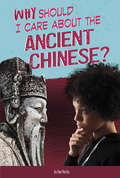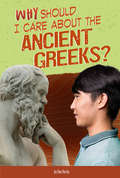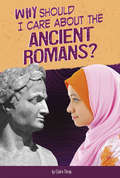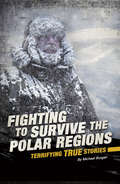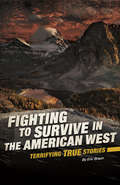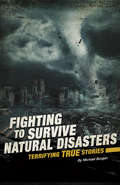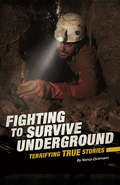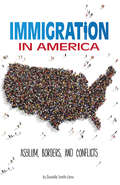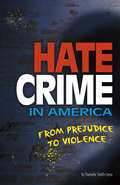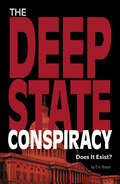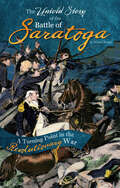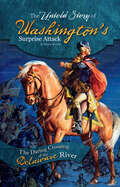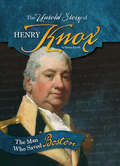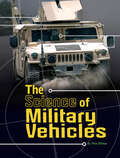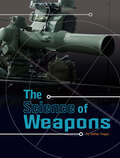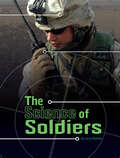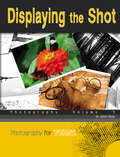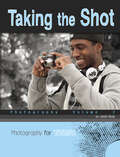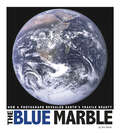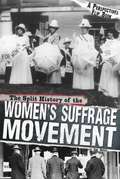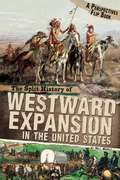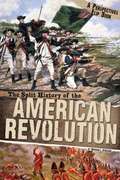- Table View
- List View
Why Should I Care About the Ancient Chinese? (Why Should I Care About History?)
by Claire ThropFrom pasta to paper, the inventions of the Ancient Chinese remain part of everyday life in our modern world. Learn how items like wheelbarrows, the first toothbrushes, and early earthquake detectors have evolved into devices we know today and discover just how big of an impact the Ancient Chinese have had on your life.
Why Should I Care About the Ancient Greeks? (Why Should I Care About History?)
by Don NardoEvery four years, the world celebrates one of the most exciting contributions of the Ancient Greeks: the Olympic Games. That, of course, is not all this great civilization left behind. From theater to democracy, discover how the Greeks' ancient inventions and philosophies evolved into objects and ideas we know and treasure today.
Why Should I Care About the Ancient Romans? (Why Should I Care About History?)
by Don NardoWe celebrate the Ancient Romans for contributions they made to modern engineering and architecture, but their impact is felt in even the smallest details of everyday life. Discover how inventions like socks, fast food restaurants, and movie theaters got their start in Ancient Rome and evolved into things we enjoy today.
Why Should I Care About the Ancient Egyptians? (Why Should I Care About History?)
by Nick HunterThe Ancient Egyptians are famous for their pyramids and mummies, but how do these ancient items impact your life today? From hieroglyphs evolving into emojis and kohl around the eyes evolving into eye liner and mascara, the inventions and discoveries of Ancient Egypt offer us endless reasons to appreciate history.
Fighting to Survive the Polar Regions: Terrifying True Stories (Fighting to Survive)
by Michael BurganImagine being lost near the North or South poles. All around you is nothing but snow and ice as far as you can see. What would you do? Discover the true tales of daring people who survived through bitter cold, deadly storms, and other dangers with little food or other resources in this book from the Fighting to Survive series.
Fighting to Survive in the American West: Terrifying True Stories (Fighting to Survive)
by Eric BraunLife on the American frontier wasn't easy. Pioneers had to deal with tough challenges including rough terrain, extreme weather, starvation, and dangerous animals. But in spite of the hardships, people persevered. Follow the true stories of those who braved the frontier and what they had to do to survive in this book from the Fighting to Survive series.
Fighting to Survive Natural Disasters: Terrifying True Stories (Fighting to Survive)
by Michael BurganA raging wildfire burns thousands of homes. A violent earthquake creates a giant tsunami that destroys countless lives. A giant tornado wipes a small town off the map. Discover the true stories of people who survived these terrible disasters and lived to tell the tale in this book from the Fighting to Survive series.
Fighting to Survive Underground: Terrifying True Stories (Fighting to Survive)
by Nancy DickmannWhether it's being lost in a cave or caught in a collapsed mine, being trapped underground can be terrifying. You may be cold, wet, hungry, and stuck in absolute darkness. Even worse is not knowing if anyone will ever find you. Find out how people survived their ordeal in these true stories of those who were trapped underground in this book from the Fighting to Survive series.
Immigration in America: Asylum, Borders, and Conflicts (Informed!)
by Danielle Smith-LleraImmigration is a hot topic in the United States. What kind of immigration should be allowed? How should immigrants who have come into the United States illegally be treated? What about the DREAMers? Refugees seeking asylum? Will building a border wall keep out illegal immigrants and stop the flow of drugs into the U.S.? Might improving technology offer a better answer? Students will learn about the issues surrounding immigration and border security while discovering how they can get involved in helping to find a solution.
Big Pharma and the Opioid Epidemic: From Vicodin to Heroin (Informed!)
by Eric BraunMore than 130 people a day in the U.S. die from opioid overdoses. Addiction to legal and illegal opioids has been declared a national crisis. The U.S. spends about $78.5 billion a year on treatment, criminal prosecution, and health care related to the crisis. What caused this massive problem? Can the crisis be slowed or reversed? Students will get practical tips on how to help someone suffering from an addiction or experiencing an overdose, and learn about how the nation is trying to deal with the crisis.
Hate Crime in America: From Prejudice to Violence (Informed!)
by Danielle Smith-LleraHate crime in the United States is on the rise. The FBI has reported that hate crimes rose by 17 percent in 2017, increasing for the third straight year, and the trend continued into 2018 and 2019. The crimes are most commonly motivated by hatred related to race, ethnicity, or country of origin. Many crimes are also motivated by bias against sexual orientation or gender identity. Students will learn why hate crime is on the rise and how they can help combat it.
You Are Eating Plastic Every Day: What's In Our Food? (Informed! Ser.)
by Danielle Smith-LleraPlastics are in everything. Plastic is thrown into garbage, where it goes into the sea. Animals eat it and we eat animals and it gets in our food. Marine animals die from ingesting plastic instead of food. Plastic gets into fertilizer so even vegetarians ingest it. Research shows plastic is especially toxic to infants. What can we do about it? Get rid of plastics? But plastics are also literally lifesaving—for cataract surgery, for example—and cost effective. People, including teens, are finding solutions.
The Deep State Conspiracy: Does It Exist? (Informed! Ser.)
by Eric BraunEver since Donald Trump's election—and even before—people in the right-wing media have been spreading the notion of a deep-state conspiracy that is out to get—Trump, or us, or someone. Those who believe in the deep state believe that those in the government who are part of it faked 9/11, are hiding the existence of UFOs, and all sorts of other things. But are there roots in reality? This book explores the excesses of the past by the FBI and by the federal government that led to such outlandish theories.
The Untold Story of the Battle of Saratoga: A Turning Point In The Revolutionary War (What You Didn't Know About The American Revolution Ser.)
by Michael BurganThe Untold Story of Washington's Surprise Attack: The Daring Crossing Of The Delaware River (What You Didn't Know About The American Revolution Ser.)
by Danny KravitzThe Untold Story of Henry Knox: The Man Who Saved Boston (What You Didn't Know About The American Revolution Ser.)
by Danny KravitzThe Blue Marble: How A Photograph Revealed Earth's Fragile Beauty (Captured World History Ser.)
by Don NardoThe astronauts headed to the moon in December 1972 thought they knew what to expect. They would soon be exploring the moon’s surface. But what they didn’t expect came as a huge bonus. The astronauts of Apollo 17 would produce an amazing photograph of planet Earth—a lonely globe floating in inky black space. Their stunning Blue Marble image was destined to become one of the most reproduced and recognizable photos in history. And no one is 100 percent sure who took it.
The Split History Of The Women's Suffrage Movement (A Perspectives Flip Book)
by Don Nardo Kathleen Baxter Robert L. McConnellIn the mid 19th century, a few women living in upstate New York decided it was time for women to stop accepting their status as second class citizens. Women lacked many basic civil rights that men enjoyed, including suffrage the right to vote. These women from New York held a convention in which they demanded their rights. Their battle took more than 70 years to win. Along the way they were opposed and mocked by male and female anti suffragists who tried to stifle their efforts.
The Split History of Western Expansion in the United States
by Nell Musolf Malcolm RohrboughDescribes the opposing viewpoints of the American Indians and settlers during the Westward Expansion.
The Split History of the American Revolution: A Perspectives Flip Book (Perspectives Flip Books)
by Michael Burgan Lawrence Babits Kathleen Baxter Robert L. McConnellPeople from Great Britain came to North America to start new lives in the 13 American colonies. In the beginning colonists accepted British rule without question. But by the mid-1700s, things were changing. Many colonists wanted the right to govern themselves. The British government felt as if the colonists were being ungrateful. By 1775 war between the two sides was inevitable.
